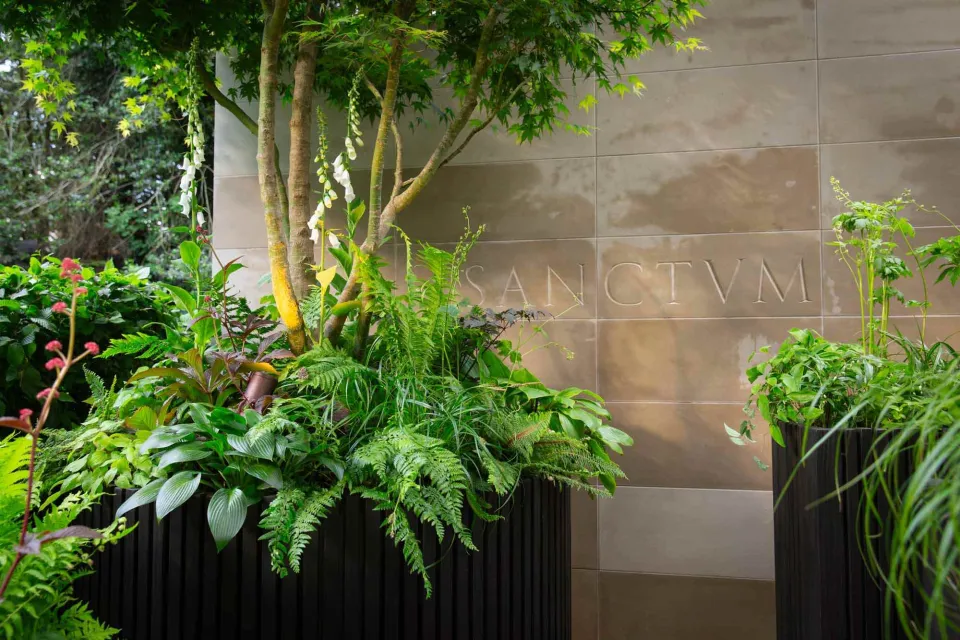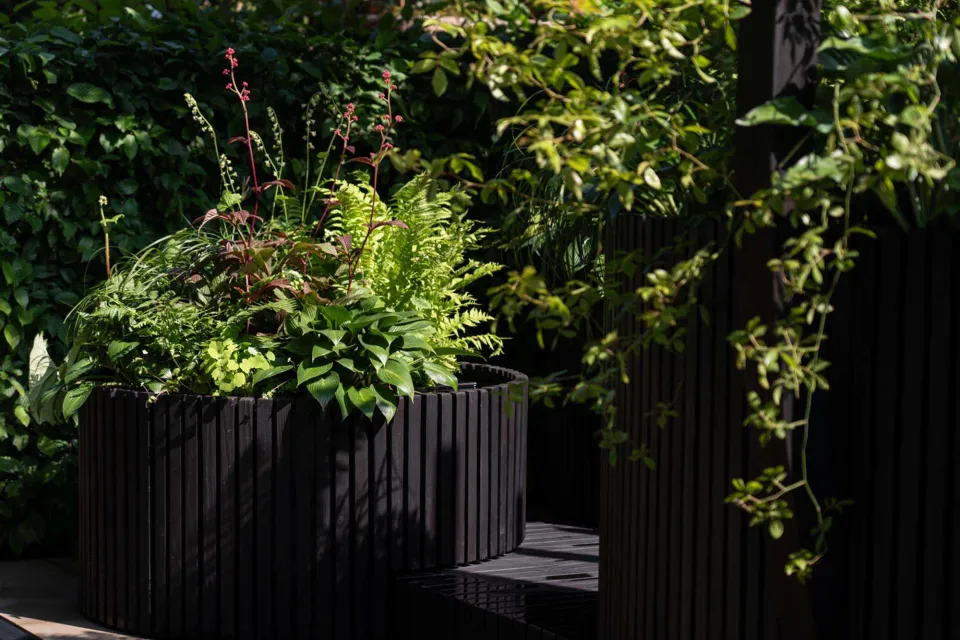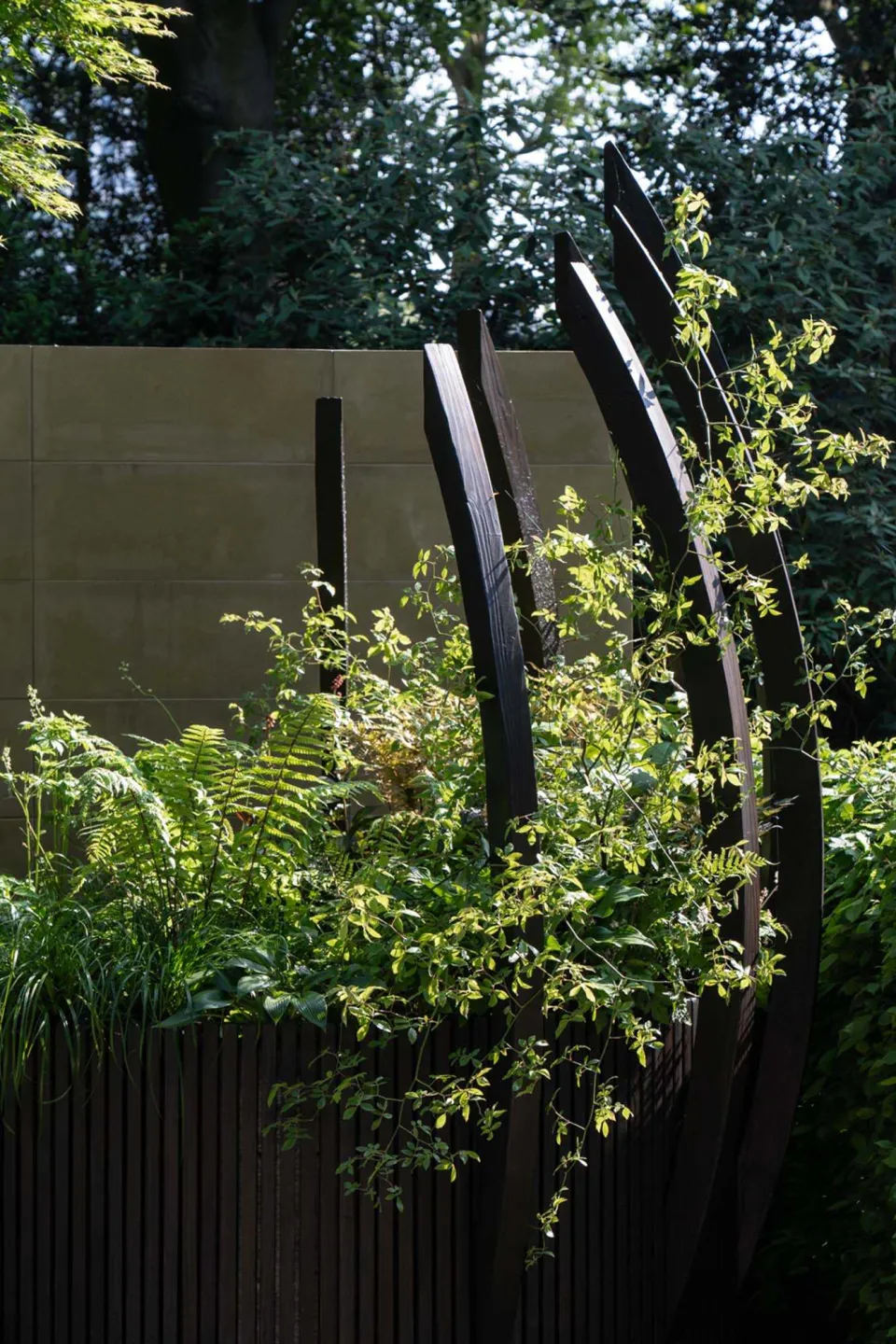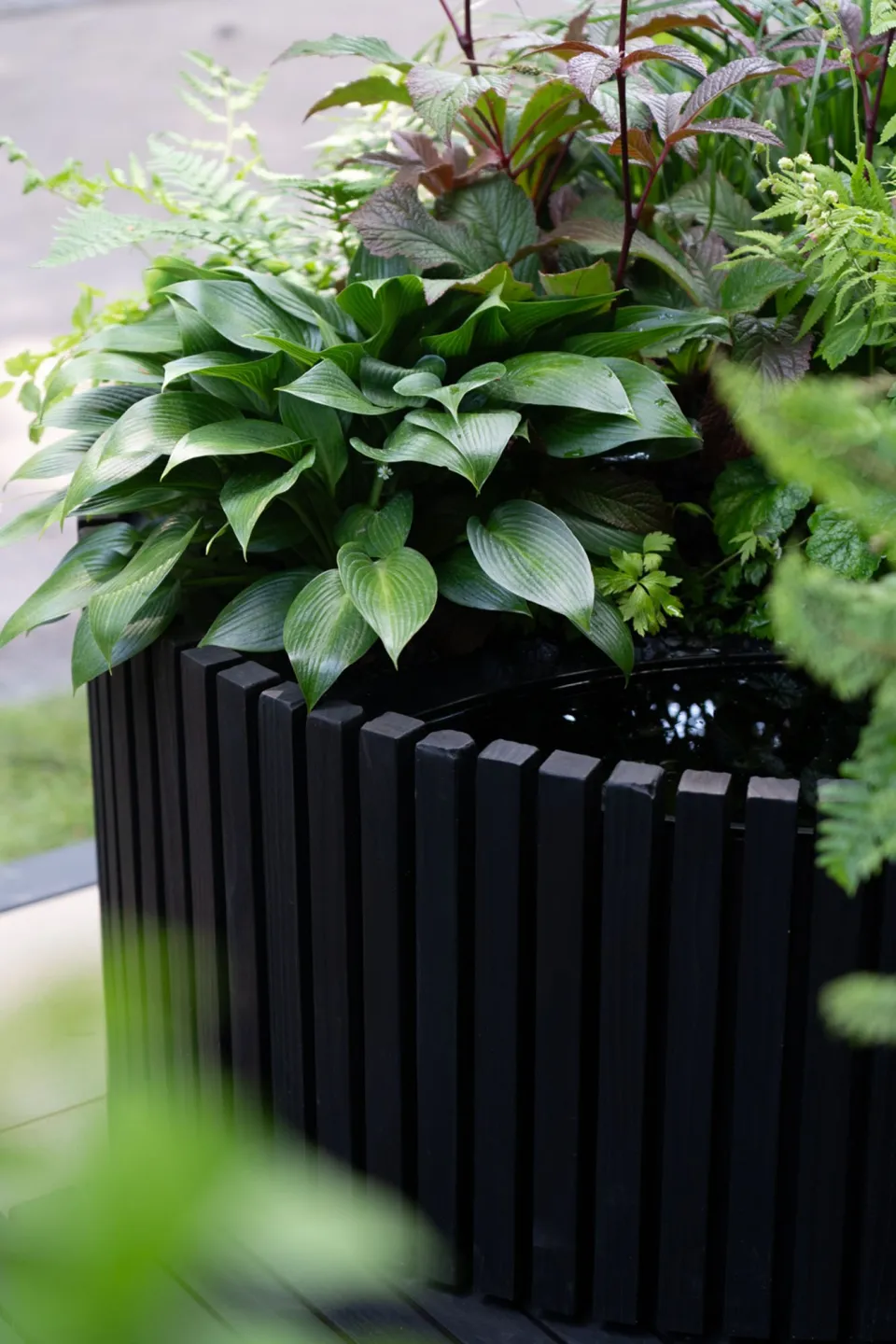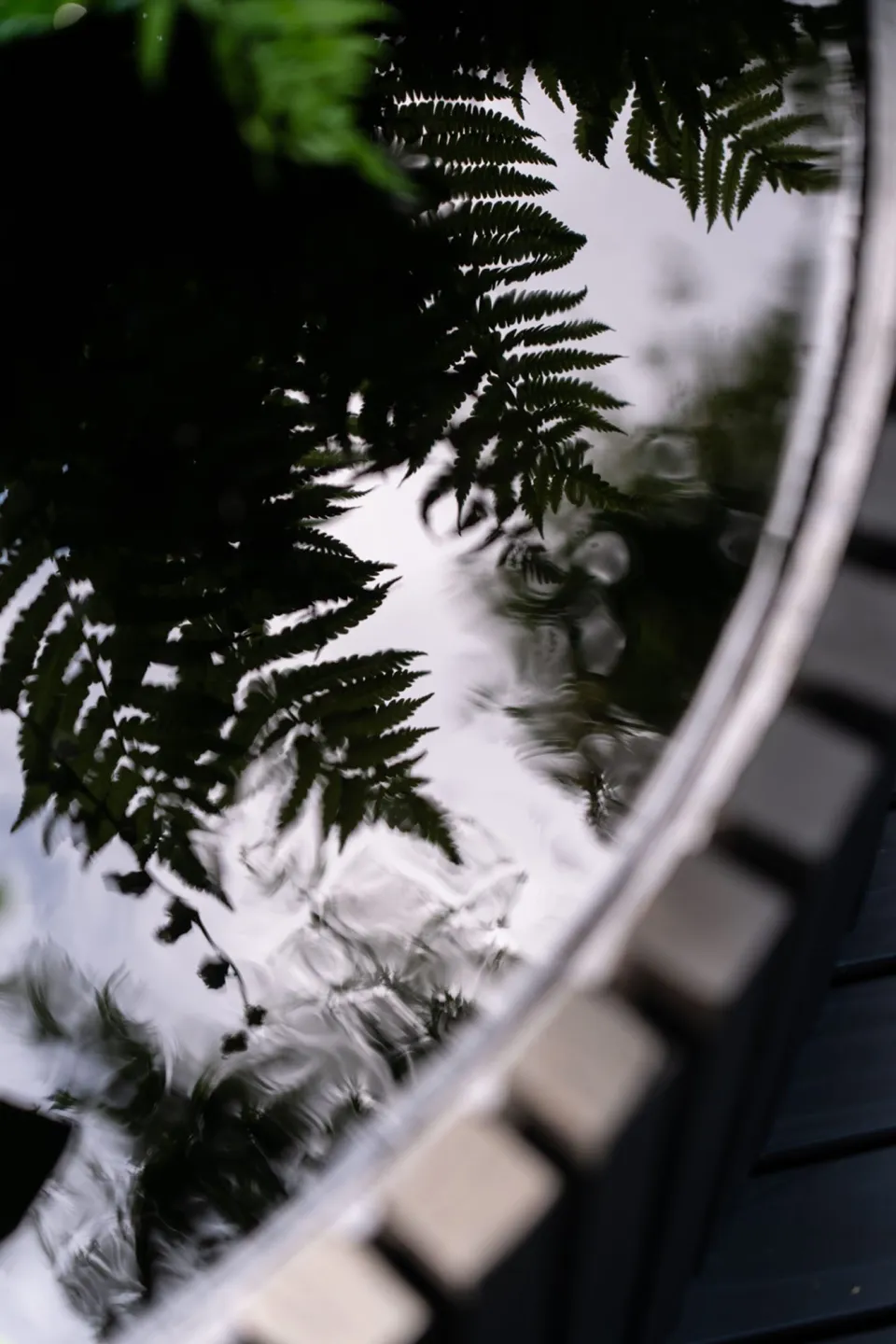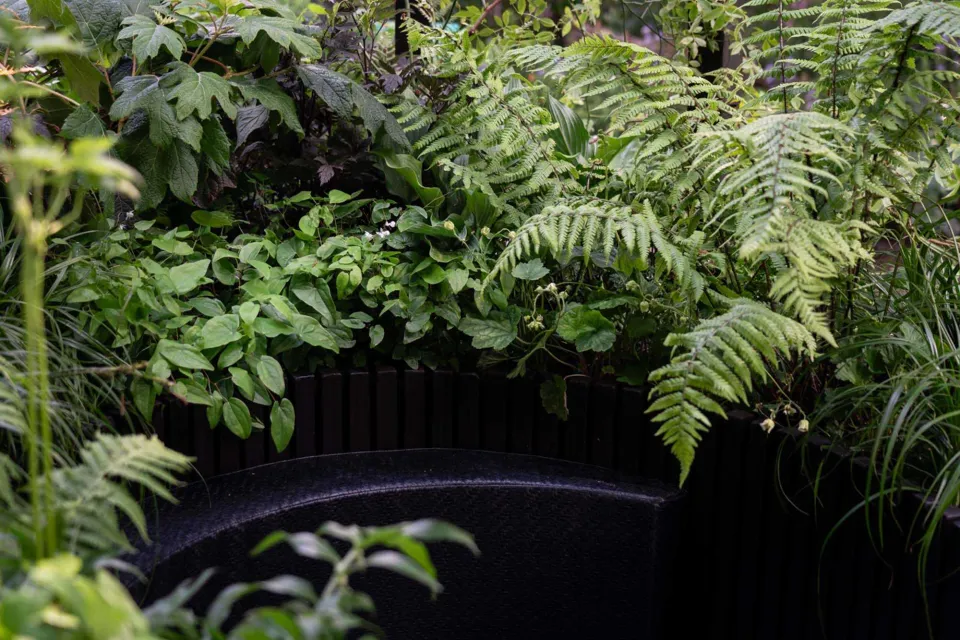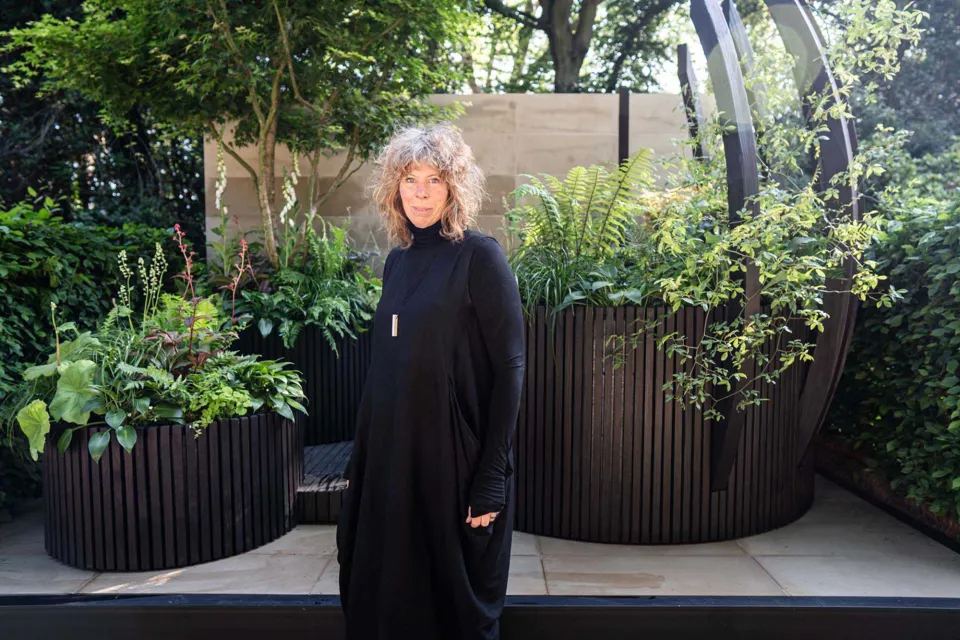-
About
-
Products
- By Timber Product
- Cladding
- Decking
- Joinery
- Screening
- Panelling
- View all
- By Application
- Exterior Cladding / Siding
- Exterior Rain Screen
- Exterior Roofing
- Interior Walls & Ceilings
- Soffits
- Screening, Fins & Battens
- Windows, Doors & Joinery
- Posts & Beams
- Accessories + Samples
- Coatings
- Fixings
- Samples
-
Shop
- Samples
- Timber Samples
- Architectural Sample Box
- View all
- Accessories
- Coatings
- Fixings
- View all
-
Resources
- By Resource Type
- Technical Data Sheets
- Guides & Manuals
- Technical Articles
- Profile Drawings
- View all
- How To
- How To Specify
- How To Install
- How To Maintain
- Projects
- Contact
A Quiet Repose - Sanctum, RHS Chelsea Flower Show
This Chelsea Flower Show Gold Medal winner uses Abodo Vulcan timber to form an inviting structure amid lush planting.
Project details
- Designer
- Sonja Kalkschmidt
- Timber Supplier
- Timbmet
- Product
- Vulcan timber, hand charred and oiled with OSMO decking oil in black
- Photography
- Mariia Savoskula and Kat Weatherill
- Location
- RHS Chelsea Flower Show, London, United Kingdom
Drawing on inspiration from the sculptural timber forms in Renzo Piano's Marie Tjibaou Cultural Centre in New Caledonia, Sanctum is designed to address the technological overload faced by many city dwellers.
As an architecture student many years ago, designer Sonja Kalkschmidt travelled to New Caledonia to view and study the Cultural Centre, which sits within verdant, tropical landscape and acts as an exhibition space.
Featuring towering, hut-like structures, the building has made a lasting impression on Sonja, which can be seen reflected in the design of Sanctum.
Created as an antidote to the fast-paced corporate world, Sanctum forms a shield of charred timber and sandstone amongst leafy planting, providing a quiet place to take a breather.
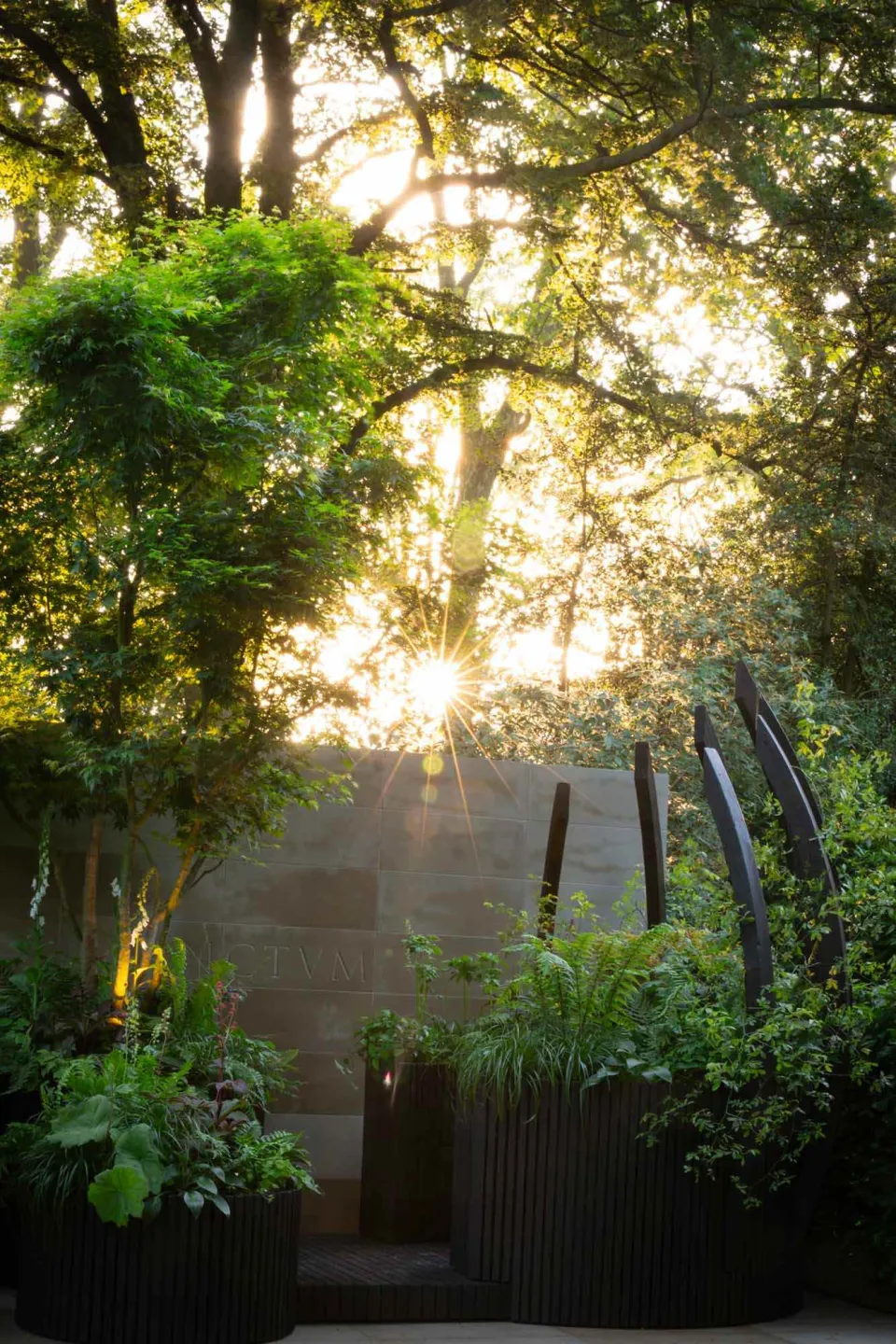
"The garden, situated in a shaded courtyard area of just 3 by 4 metres, uses a minimal material palette of buff sandstone and Abodo Vulcan wood to enhance the serene atmosphere,” says the designer. It features a carefully crafted, contrived naturalistic planting style and natural materials that are minimal yet soft to the touch. This softness was essential to the design, adding another sensory layer to the cocooned seat.
While the design was Sonja’s own, all in all, the project took a team of 70 individuals to finish. She collaborated with Krause Architects in London in the pod structure, while construction consultant Gareth Wilson assembled a team that included contractor Rupert Crowton Rowarth, who laid the sandstone and connected the water feature and lighting, and joiners Glen and Jack Copeland, who were charged with assembling the 400 pieces of Abodo Vulcan timber.
The curved structures were precisely CNC cut by Peter Jones of Model & Scenic Solutions, and Sonja and her husband Alexander charred, brushed and oiled all the timber pieces by hand.
“We couldn’t process all the wooden pieces simultaneously due to storage constraints and the necessary drying times for washing off the ash and oiling. Therefore, we worked in tandem with the joiners, assembling everything in stages off-site,” explains Sonja.
The plants themselves were sourced from six nurseries, with volunteers also putting in legwork to make the project come together.
A previous garden show exhibit at Belvoir Castle also included stained black timber recycled from fence posts, exemplifying Sonja’s dedication to sustainability and love of timber.
“I was really impressed by Abodo's transparency in showing the growing areas of the Radiata pine. It makes such a difference. Ethics and sustainability are central to my designs, and this aligns perfectly with the company's ethos.” she says.
As it turned out, Abodo was not Sonja’ first choice, as her specified timber source was not available when it came to construct the project.
While she was not familiar with Abodo, Sonja researched the timber’s sources and tested a sample with her charring and brushing process. She was pleased to find low ash residue and a clean, even finish, which was in keeping with her project’s calming aesthetic.
Even when taking into account transportation from New Zealand, the Forest Stewardship Council®certified timber stores more carbon than is used in its production. “I don’t see factors such as distance in isolation with the carbon footprint. There are so many other parameters to consider and one needs to re-think it as a whole,” she says.
Working on an intricate structure, Sonja also appreciated the lightness and malleability of the timber, which made transport and installation easier.
“Abodo Vulcan timber met my specific design requirements. Achieving a charred wood finish that doesn’t leave ash residue was a significant challenge, but Vulcan ticked all the boxes, fulfilling both aesthetic and functional needs.”

